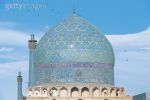Putting the Joy Back in Jihad
What’s so joyful about a jihad? It’s one of those experiences that afterwards we call a blessing in disguise.
The concept of jihad or holy war is embedded in the Quran, but it has, from its earliest beginnings, been fraught with multiple meanings. Muslims often speak of jihad as both a struggle to submit to God’s will (considered the greatest of jihads) and a battle against unbelievers (the lesser of the jihads). Our focus today will be on the greater, the individual’s journey toward purity of the soul.
 However, it is important to note that the jihad that points to a battle against unbelievers has more to do with Muslims being commanded to do something that they believe to be contrary to the law of God (which includes the sin of polytheism), or to those that dishonor or defeat the community of the faithful, at which point jihad becomes a duty.
However, it is important to note that the jihad that points to a battle against unbelievers has more to do with Muslims being commanded to do something that they believe to be contrary to the law of God (which includes the sin of polytheism), or to those that dishonor or defeat the community of the faithful, at which point jihad becomes a duty.
It has never been historically true that Muslims are somehow obligated to wage war against those who do not surrender to Allah. In fact, during what many call the Golden Age of Islam (from about the 9th to 12th centuries), “Muslims were ruling peacefully over large populations of non-Muslims without expending the slightest bit of effort to convert them or to challenge their beliefs.” (From Peace Be Upon You by Zachary Karabell).
In addition, there is no Islamic jurist (classical or modern) that offers approval or legitimacy to what we now call terrorism. The armed struggles of jihads of the past were elaborately regulated by Shari’a law (which simply means holy law, covering everything from fasting and pilgrimage to constitutional and criminal law). For instance, no women, children, or the aged are allowed to be killed (in principle). You have to give fair warning of the opening of hostilities. These jihads are considered wars in the traditional sense or political reforms or changes in economic policies, but do not in any way resemble the terrorist acts of the last several decades.
“The greater jihad is something all devout individuals must wage… against their own desires. The mystics of Islam often spoke of jihad as a “dark night of the soul”, where the striver is faced with his/her demons and must confront them in order to stay on the path toward God.” (Karabell, pg. 126). It is a sense of purging and purifying oneself. It may involve works such as fasting or penance, but primarily it is cleansing the heart from obstructive thoughts, such as envy, greed, revenge, and selfishness, that move us further away from our truest nature.
Christians recognize this metaphor from the work, Dark Night of the Soul (Our Book of the Day) by St. John of the Cross, a 16th century Spanish poet, mystic, and Carmelite priest. It is used to describe a phase in a person’s spiritual life, marked by a sense of loneliness and desolation. There has been much scholarly discussion as to whether the Christian was influenced by the Sufi or vice versa, but there is no conclusive evidence in either direction.
Interestingly, the inner turmoil of the soul is referenced by most spiritual traditions throughout the world as a necessary step toward a union with God or for a sense of wholeness.
The Buddhists have a parallel in their practices called “the Knowledges of Suffering.” In fact, the Buddhist writer Daniel Ingram speculates that the Dark Night is a common mystical state which is independent of any specific belief system. He uses the term “maps” for the sequence of mental states:
“The Christian maps, the Sufi maps, the Buddhist maps, and the maps of the Khabbalists and Hindus are all remarkably consistent in their fundamentals. These maps are talking about something inherent in how our minds progress in fundamental wisdom that has little to do with any tradition and lots to do with the mysteries of the human mind and body. ”
Jihad is a spiritually powerful word that describes a part of the necessary and well worn path toward a union with the divine; it is the process by which personal roadblocks that threaten our spiritual growth are removed. By continually and willingly entering into jihad, the gifts of the spirit are manifold, including joy, peace, faith, and clarity. The soul awakens.
” The reason for this has been clearly expounded; for ordinarily the soul never strays save through its desires or its tastes or its reflections or its understanding or its affections; for as a rule it has too much or too little of these, or they vary or go astray, and hence the soul becomes inclined to that which behooves it not. Wherefore, when all these operations and motions are hindered, it is clear that the soul is secure against being led astray by them; for it is free. For when the affections and operations of the soul are quenched, nothing can make war upon it.” (Quote from the Book of the Day)
Tomorrow’s post: Ten Religious Words That The Spin Doctors Doctored

